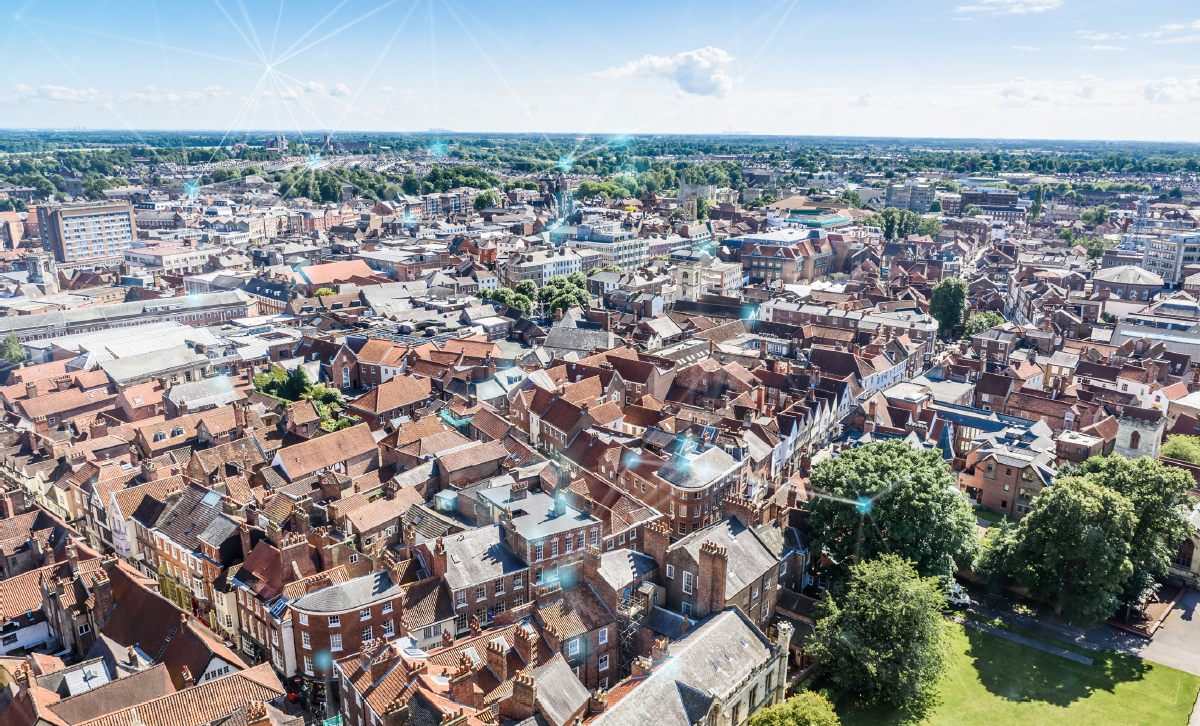Why the UK badly needs intelligent CCTV surveillance systems
If you manage the security of a residential community in the UK, you may want to review the efficacy of your CCTV systems.
Earlier this month the Bank of England warned Britain’s economy could plunge into recession before the end of the year with inflation hitting 10%. Crime rises in recessions according to research conducted over a 76-year period, with analysis revealing that economic downturns lead to increases in burglary, robbery, and suicide.
Research shows that crime is more prevalent in larger towns and cities, especially in the neighbourhoods with the highest levels of income deprivation and unemployment.
More than 267,000 burglaries were reported in 2021.
A burglary takes place every 106 seconds in the UK
38% of burglaries happen during the day
Now one could argue if a residential estate is blanketed with CCTV, it should act a deterrent for bad actors. However, this view might not be correct as traditional CCTV systems have innate weaknesses.
WHAT RESTRICTS CCTV SURVEILLANCE?
To start with, most installed CCTV equipment is dated and may not be working effectively or working at all. Combined with insufficient staff to monitor video footage on a 24/7 basis from multiple sites across dispersed locations, the unknown health status of the security system and cameras, and limited budgets for upgrades and maintenance, security agencies face a myriad of challenges.
Also, as the recorded security footage resides on locally installed recording equipment, it can be accessed by unauthorised personnel. Anti-social behaviour can also lead to criminal damage or theft of the security equipment. Security agencies will face GDPR prosecution if recorded footage is incorrectly obtained, viewed by unauthorised personnel, or falls into the wrong hands.
Traditional CCTV systems record continuous footage on a 24x7 basis, creating an enormous amount of data, which must be purged every 30 days based on the storage capacity of the recording device to ensure that the last 30-days’ footage is available for review.
Apart from this, most of the systems need competent security officers to make a site visit to access the footage. This puts pressure on the resource-constrained CCTV provider as trained and skilled staff may need to be sent to several locations based on the priority of cases. Apart from the personnel crunch, they first need to gain access to where the video recorder is housed and need the approval of the office bearers at the site and potentially law enforcement before they can visit and retrieve the event footage.
After reaching the site, the technical staff are, in many cases, faced with an archaeological dig, sifting through long hours of footage from various cameras to find a short event on an unknown date, then shortlist the footage for law enforcement to review. As you can see, this can introduce large time delays and make it near impossible to initiate corrective actions in a timely manner. In effect, this is the current state of a majority of housing and residential installations, it is a delayed, passive reactive usage of CCTV.
A further complication arises when admitting video footage for evidence in the prosecution of offenders. Is the footage from your system legally admissible in court today and can you prove it has not been tampered with?
EFFECTS OF POOR CCTV SURVEILLANCE
An ineffective CCTV installation is a waste of time and money but the wider social impact can be far more difficult to measure. Residents start feeling unsafe and this leads to dissatisfaction among customers. As incidents of theft and damage increase, so does the number of insurance claims. This leads to higher insurance premiums as the claims lead to an escalation in perceived risks for insurance providers.
Security incidents attract negative press and damage to reputation, and loss and/or damage of assets, without any consequences for perpetrators of the crime means offenses are likely to be repeated.
AI/ML (ARTIFICIAL INTELLIGENCE/MACHINE LANGUAGE) POWERED CCTV IS NEEDED
After carefully analysing the shortcomings of current CCTV systems, residential managers and housing associations wanting to move to the next generation of surveillance should look for cloud-enabled products that leverage Artificial Intelligence, Machine Learning (AI/ML), and Edge Intelligence capabilities. Directly addressing the challenges highlighted, Housing Associations should look for surveillance systems that provide the following capabilities:
Support and minimally disrupt the existing infrastructure of analogue or IP cameras while future-proofing choices to add analytics and modernise physical hardware over time
Recording and storage of footage in the cloud based on intelligent event triggers vs simply 24x7 recording
Archive event-based CCTV footage in a secure cloud environment. Ensuring no footage can be lost, damaged, or allowed to be tampered
Enable ‘Role-based-access’ to recorded footage, ensuring only authorised users can access, view, share, and download
Send alerts and notifications to provide immediate situational awareness
Provide reviewers with any time, anywhere, on-demand access to the cloud-hosted, event-based CCTV footage which covers the precise duration of the event
Enable reviewers to extract the relevant footage and initiate subsequent actions in a timely manner
Use military-grade encryption to protect footage while being uploaded and when stored in the cloud
Support GDPR compliance
Provide legally admissible footage that can stand up in a court of law as original and could not have been tampered with
Provide flexible storage options to suit user requirements
Is easily scalable with changing requirements
Allows for optional video analytics are available to provide additional levels of enhanced intelligent security
These are the generic capabilities you should look for in upgrading and future-proofing your CCTV system.


